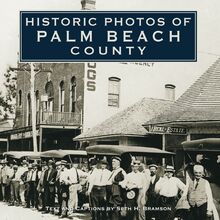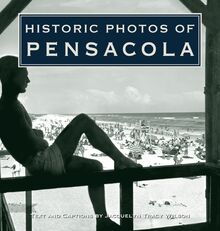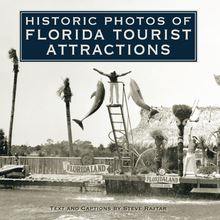-
 Univers
Univers
-
 Ebooks
Ebooks
-
 Livres audio
Livres audio
-
 Presse
Presse
-
 Podcasts
Podcasts
-
 BD
BD
-
 Documents
Documents
-
- Cours
- Révisions
- Ressources pédagogiques
- Sciences de l’éducation
- Manuels scolaires
- Langues
- Travaux de classe
- Annales de BEP
- Etudes supérieures
- Maternelle et primaire
- Fiches de lecture
- Orientation scolaire
- Méthodologie
- Corrigés de devoir
- Annales d’examens et concours
- Annales du bac
- Annales du brevet
- Rapports de stage
La lecture à portée de main
Vous pourrez modifier la taille du texte de cet ouvrage
Découvre YouScribe en t'inscrivant gratuitement
Je m'inscrisDécouvre YouScribe en t'inscrivant gratuitement
Je m'inscrisEn savoir plus
Vous pourrez modifier la taille du texte de cet ouvrage
En savoir plus

Description
For well over a century, the lure of scenic beaches and ocean waves have drawn visitors to the Jersey Shore. Presidents had summer homes where they could escape the pressures of office. Other visitors decided to stay, often building ornate, Victorian mansions that today are as much an intrinsic part of the area's charm as the lighthouses that guided ships to safe harbors.
Historic Photos of Jersey Shore captures both the history and the magic of this unique section of America, utilizing rarely seen, striking, black-and-white photographs selected from local, state and national collections.
Relive the days when the boardwalks were new and watch as wondrous seaside attractions rise to provide visitors with a wealth of amusements. Stroll the shaded streets of small towns where year-round residents call the Shore home. Join farm workers as they harvest cranberries and blueberries. Set sail with the oyster fleets. Witness the devastation of Atlantic storms and visit the military installations that protected this cherished shoreline. Experience the excitement and beauty that is the Jersey Shore.
Sujets
Informations
| Publié par | Turner Publishing Company |
| Date de parution | 01 décembre 2007 |
| Nombre de lectures | 0 |
| EAN13 | 9781618586445 |
| Langue | English |
| Poids de l'ouvrage | 9 Mo |
Informations légales : prix de location à la page 0,1900€. Cette information est donnée uniquement à titre indicatif conformément à la législation en vigueur.
Extrait
HISTORIC PHOTOS OF
JERSEY SHORE
T EXT AND C APTIONS BY J OE C ZACHOWSKI
Barnegat Light and lighthouse can be seen from Barnegat Bay and the Atlantic. Barnegat Bay is nearly forty miles of estuary fed by many rivers and is linked to the Atlantic by the Barnegat Inlet. The light-keeper s house in front is gone and the lighthouse has physically been moved back a few times because of beach erosion. It is a beloved structure for South Jerseyans.
HISTORIC PHOTOS OF
JERSEY SHORE
Turner Publishing Company
www.turnerpublishing.com
Historic Photos of Jersey Shore
Copyright 2007 Turner Publishing Company
All rights reserved.
This book or any part thereof may not be reproduced or transmitted in any form or by any means, electronic or mechanical, including photocopying, recording, or by any information storage and retrieval system, without permission in writing from the publisher.
Library of Congress Control Number: 2007929598
ISBN-13: 978-1-59652-399-9
Printed in the United States of America
ISBN: 978-1-68336-980-6 (hc)
C ONTENTS
A CKNOWLEDGMENTS
P REFACE
P ROFESSIONALS, P RESIDENTS, AND P IERS (1800 S -1905)
G ROWTH AND D ESTRUCTION (1906-1929)
N EW D ANGERS AND A N EW D EAL (1930-1949)
B LUE -C OLLAR P ARADISE (1950-1979)
N OTES ON THE P HOTOGRAPHS
On Governor s Day, the governor and his constituents could enjoy a day at the beach. This photo was taken on Governor s Day, 1925, at Sea Girt, the summer residence for the state s chief executive. The summer residence has since been moved to Island Beach State Park, farther south, in a more secluded but wildly beautiful setting.
A CKNOWLEDGMENTS
This volume, Historic Photos of Jersey Shore , is the result of the cooperation and efforts of many individuals, organizations, and corporations. It is with great thanks that we acknowledge the valuable contribution of the following for their generous support:
Gateway NRA/NPS
Library of Congress
Monmouth County Historical Association Library Archives
National Archives
NAS Wildwood Aviation Museum
New Jersey State Archives; Department of State
www.moorlyn.com
We would also like to thank the following individuals for valuable contributions and assistance in making this work possible:
Jim Laymon, www.moorlyn.com
Joanne M. Nestor, Principal Photographer, New Jersey State Archives
In working on this book, my late wife, Patti-Ann, was constantly on my mind. She lost a courageous forty-seven-year battle against cystic fibrosis in 2000. There was no one I ever met who loved the Jersey Shore more than she did. I thank her for my inspiration.
- Joe Czachowski
P REFACE
When you grow up in New Jersey, it s not a given that you are a Shore lover. There may even be some people who have only been there once in their lives. I was a little ambivalent myself for sixteen years, until one magic, sultry night in Seaside Heights during August of 1969. I was with a buddy on the boardwalk and saw a sign on the Chatterbox Bar advertising an appearance by the great Jackie Wilson. Jackie had been around for a while already, and I was into rock music, but I loved listening to my older brother s records of him. You couldn t touch that voice.
We were about six dollars and six years short of gaining entry, so we sat next to an exit and just listened. The set finished about 2:00 AM and we were nearly clobbered by someone opening the door to take out garbage. Just after that, out the front door came Wilson himself with a small entourage. I nudged my friend hard, pointed, and said, Hey, it s Jackie Wilson. Jackie heard me, waved back, pointed at me and said, Hey, man. I d like to say it was sparkling sand, or the azure blue of the ocean, or the constant rhythmic crashing of the waves that captured me, but it wasn t any of that-it was Jackie Wilson. I never saw him again, but that night is one of my treasured memories and the reason I returned to the shore year after year, until empty pockets forced me to work summers. Imagine that, working in the summer. Go figure.
When I was asked to write the text for this book project, I honestly figured writing a book about the Jersey Shore would be a piece of cake. It wasn t. So much beauty, so few pages. I ve learned to love the shore in all four seasons. The beach can be as beautiful on New Year s Day as it is on the Fourth of July. In September, when crowds are gone and the water s still warm enough for swimming, it s great. Going in the spring and sniffing salt air for the first time after a long winter makes your mouth water for summer. I discovered a lot about the history of towns I had been going to for years. For instance, I had been to Long Branch many times, yet I had never seen its Broadway, the main street, until I researched pictures of the town. I knew about Jersey s Revolutionary War history because I teach it, but I knew nothing about the rich history of so many of the towns that punctuate the coastline.
The Shore has a fascinating history: towns with names like Belmar, Avon-by-the-Sea, and Avalon; Native American influences, with rivers called Metedeconk and Manasquan and a bay called Absecon. There are one-hundred-twenty-seven miles of beaches in the state. Along the stretch from Sandy Hook to Cape May Point there are no less than fifty-one towns to visit. All have charm, some have glitz, some have kitsch, but all have something that permeates your soul and makes you go back year after year.
Parallel to the Atlantic Ocean is the bay shore region. Barnegat Bay, Sandy Hook Bay, and the Great Bay are parts of the Shore but have a life separate from the sea. Thriving communities have sprung up and have become as important to the recreational aspect of the tourism industry as the beaches. The communities, too, can be at opposite ends of the spectrum. The rich mansions of Deal and Mantoloking are a stark contrast to the poverty of Asbury and the sections of Atlantic City beyond the casino shadow.
There is both a need for and a dread of tourist dollars along the Shore. On Memorial Day weekend, towns explode with excitement that rarely stops until Labor Day. Thousands more residents, from senior citizens to young condominium buyers, settle full-time in the area. Day trippers and short-stays-weekend to two-week renters-pack the bungalows and rental houses, clogging roads and stores, and raising the ire of the resident population. A derogatory term of unknown origin, bennie, was given to those who change into their bathing suits out of their car trunk. The term is still in use, but summer traffic pays the freight.
The Jersey Shore continues to mesmerize people of all ages, yet some have taken the area for granted and put it into ecological peril. Environmental groups are at odds with developers. Mother Nature constantly steps in and warns both of the fragility of the coastline. It will never be as pristine as it once was, but there is still time to keep it safe. I hope you enjoy perusing this text and seeing the evolution of communities and the growth of the state along its border with the mighty Atlantic.
- Joe Czachowski
The goal in publishing this work is to provide broader access to a set of extraordinary photographs. The aim is to inspire, provide perspective, and evoke insight. In addition, the book seeks to preserve the past with respect and reverence.
With the exception of cropping where necessary and touching up imperfections wrought by time, no other changes have been made. The focus and clarity of many images is limited to the technology of the day and the skill of the photographer who captured them.
- Todd Bottorff, Publisher
A crowded Atlantic City beach in the early 1900s could have unexpected diversions. This young lady is having her fortune told-or is her fortuneteller hoping to get a date for later in the evening?
P ROFESSIONALS , P RESIDENTS, AND P IERS
(1800 S -1905)
It is said we are attracted to the ocean because we are chemically nearly all water. Atlantic City never used that in an advertisement, but people flocked there anyway. This city was the crown jewel of the New Jersey Shore for the second half of the nineteenth century and beyond. As a resort, it had been around since 1830, and it was founded as a city in 1853. A railroad was constructed to bring people in with the promise of better health because of the salt air. People continued to flock to this new city, and in 1870, a wooden esplanade was constructed called the boardwalk. Initially, it was just intended to keep the sand out of the hotels, but the boardwalk became an immediate success and a new source of entertainment. Stores, eateries, amusements, and rides began to appear along it.
Philadelphia s professional community was the first to be drawn here. The area was not yet easily accessible from Northern and Central New Jersey. Grand hotels began to appear on the boardwalk, with large rooming houses close by. Initially, the city catered to the upper class and the rich and famous, such as railroad mogul George Pullman, but there was something for everyone. Politicians, most notably presidents Ulysses S. Grant and James A. Garfield, discovered the town of Long Branch. The artist Winslow Homer spent time there and in 1869 painted the seascape titled Long Branch, New Jersey . In 1881, the first beach patrol was formed in Atlantic City. Initially, it consisted of only Dan Headly and Nick Jeffries patrolling the entire beach area and the throngs gathered there. New novelties emerged. Salt water taffy, ice cream stands, animal acts, and the Steel Pier with its multiple forms of entertainment-all for one admission-had tourists flocking to Atlantic City. Perhaps as a symbol of the success of the town, the Million Dollar Pier opened. The city and its boardwalk became a tourist attraction, an entertainment mecca, THE place to be.
While the boardwalk became synonymous with entertainment, there were still working-class people struggling to make a living in the Shore counties industries. Farmi
-
 Univers
Univers
-
 Ebooks
Ebooks
-
 Livres audio
Livres audio
-
 Presse
Presse
-
 Podcasts
Podcasts
-
 BD
BD
-
 Documents
Documents
-
Jeunesse
-
Littérature
-
Ressources professionnelles
-
Santé et bien-être
-
Savoirs
-
Education
-
Loisirs et hobbies
-
Art, musique et cinéma
-
Actualité et débat de société
-
Jeunesse
-
Littérature
-
Ressources professionnelles
-
Santé et bien-être
-
Savoirs
-
Education
-
Loisirs et hobbies
-
Art, musique et cinéma
-
Actualité et débat de société
-
Actualités
-
Lifestyle
-
Presse jeunesse
-
Presse professionnelle
-
Pratique
-
Presse sportive
-
Presse internationale
-
Culture & Médias
-
Action et Aventures
-
Science-fiction et Fantasy
-
Société
-
Jeunesse
-
Littérature
-
Ressources professionnelles
-
Santé et bien-être
-
Savoirs
-
Education
-
Loisirs et hobbies
-
Art, musique et cinéma
-
Actualité et débat de société
- Cours
- Révisions
- Ressources pédagogiques
- Sciences de l’éducation
- Manuels scolaires
- Langues
- Travaux de classe
- Annales de BEP
- Etudes supérieures
- Maternelle et primaire
- Fiches de lecture
- Orientation scolaire
- Méthodologie
- Corrigés de devoir
- Annales d’examens et concours
- Annales du bac
- Annales du brevet
- Rapports de stage




















